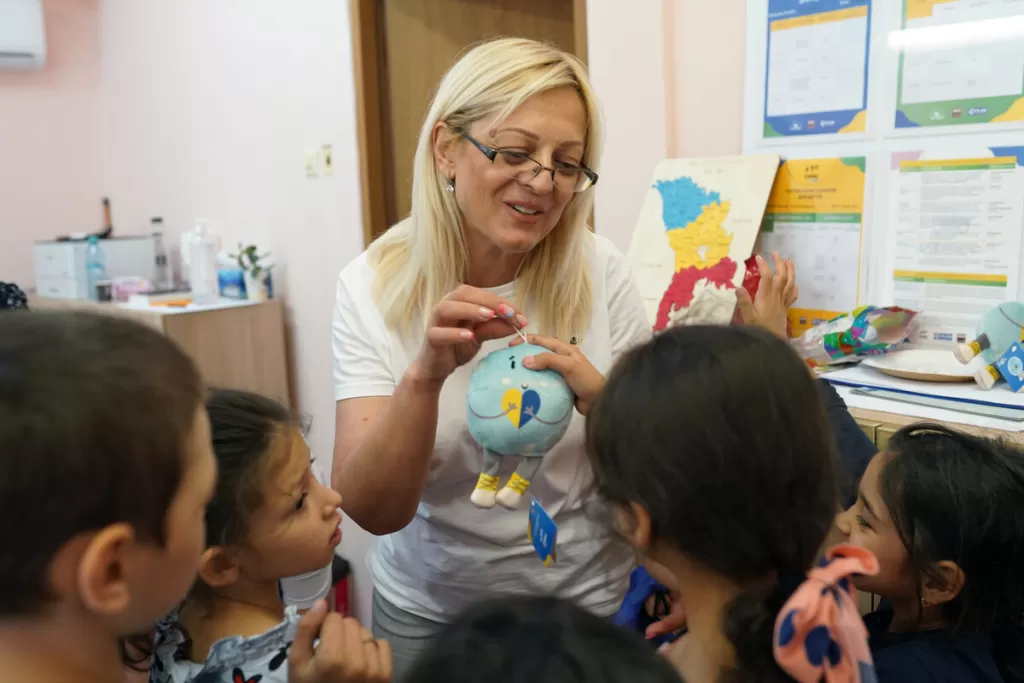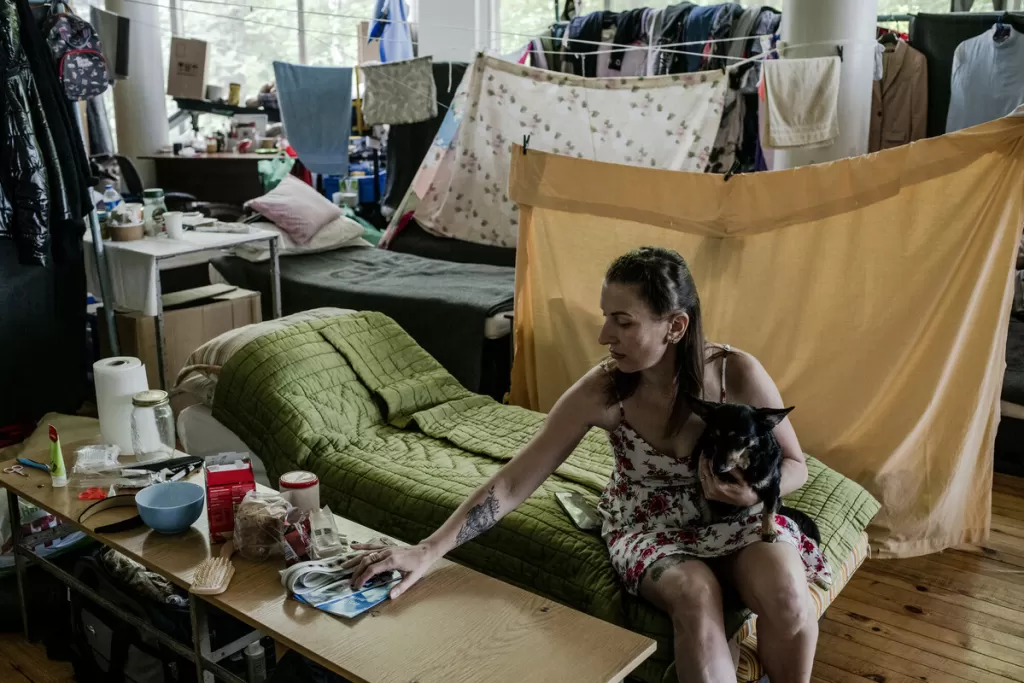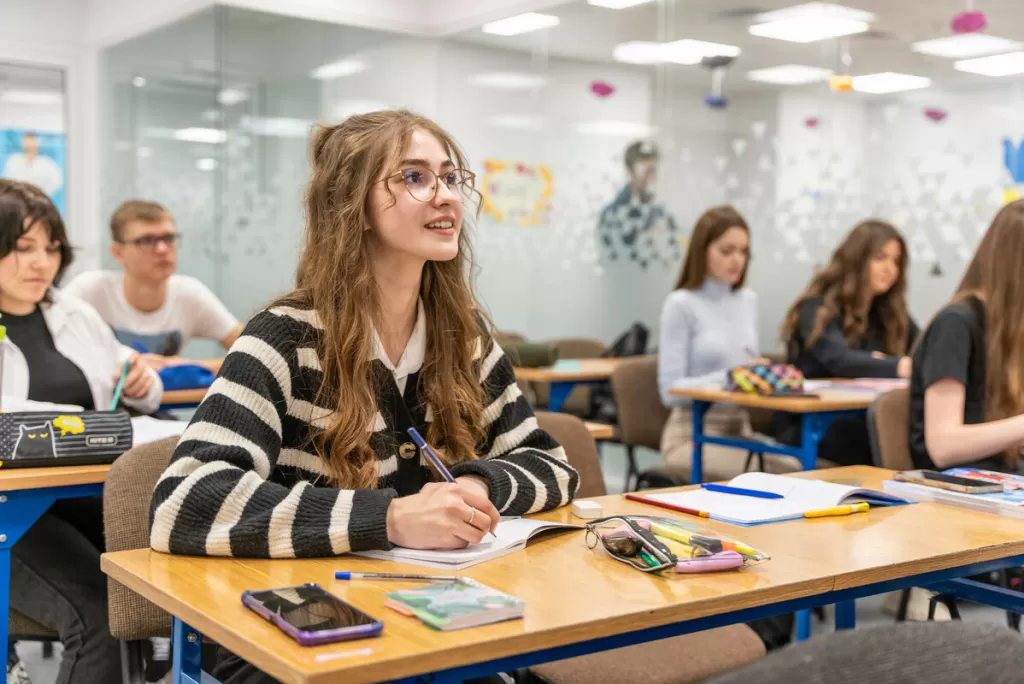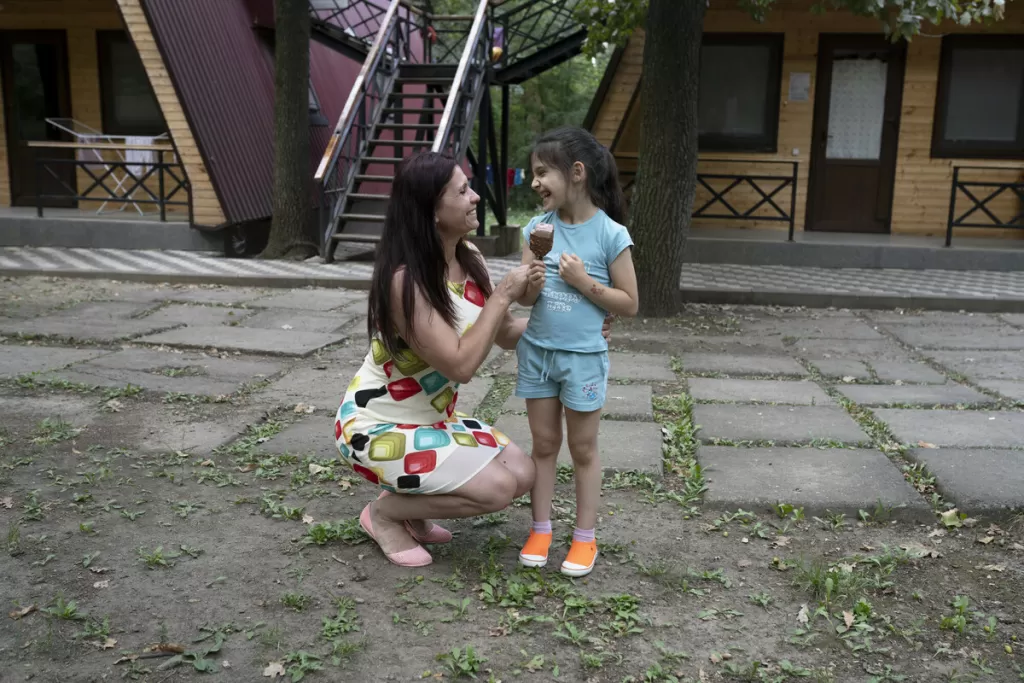DEC funds are also being used to set up specialist centres, where refugees can access various kinds of support, including mental health services, language courses and childcare. In the year to September 2023, across Ukraine and neighbouring countries DEC charities and their local partners have provided 84,900 children with education support including language courses and educational trips.
Supporting mental health
When the conflict escalated, DEC charities were focused on meeting people’s immediate needs, including access to emergency medical care. Many were injured in the conflict or were unable to see a doctor to get treatment or medication. DEC charities worked with the Ukrainian Ministry of Health to provide medical equipment and supplies, and set up mobile clinics in places where healthcare wasn’t available.
Living with the conflict has also had an enormous impact on people’s mental health. Between August 2022 and September 2023, 125,000 people received mental health or psychosocial support using DEC funds.
The conflict has been especially hard on children, who may have experienced airstrikes, hidden in bomb shelters, been forced to leave their homes, been separated from a parent.
For example, in Poland, DEC charity Plan International provided helpline counselling to over 4,200 children, and in Moldova, three mobile teams visited refugee accommodation centres in local host communities to offer mental health and psychosocial support to over 2,500 children and their caregivers. This includes activities like art therapy and games, which give children the chance to express themselves and process what they’ve experienced.




